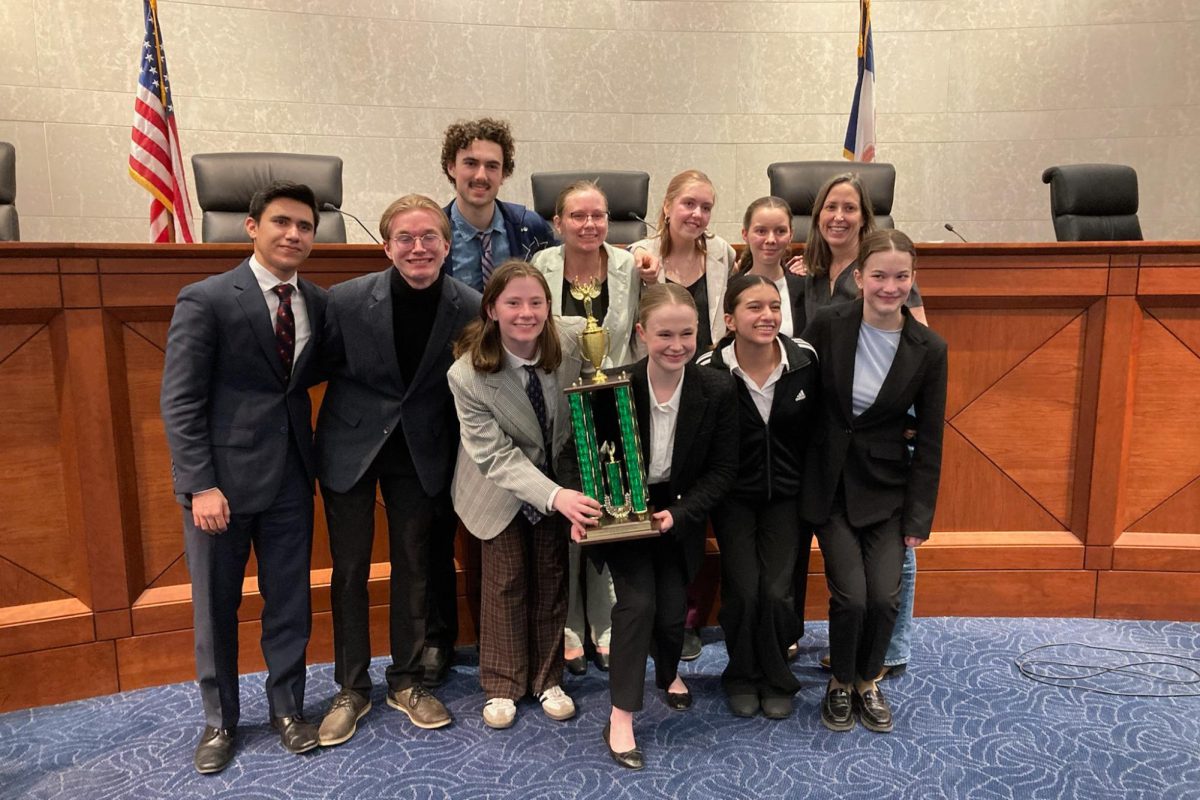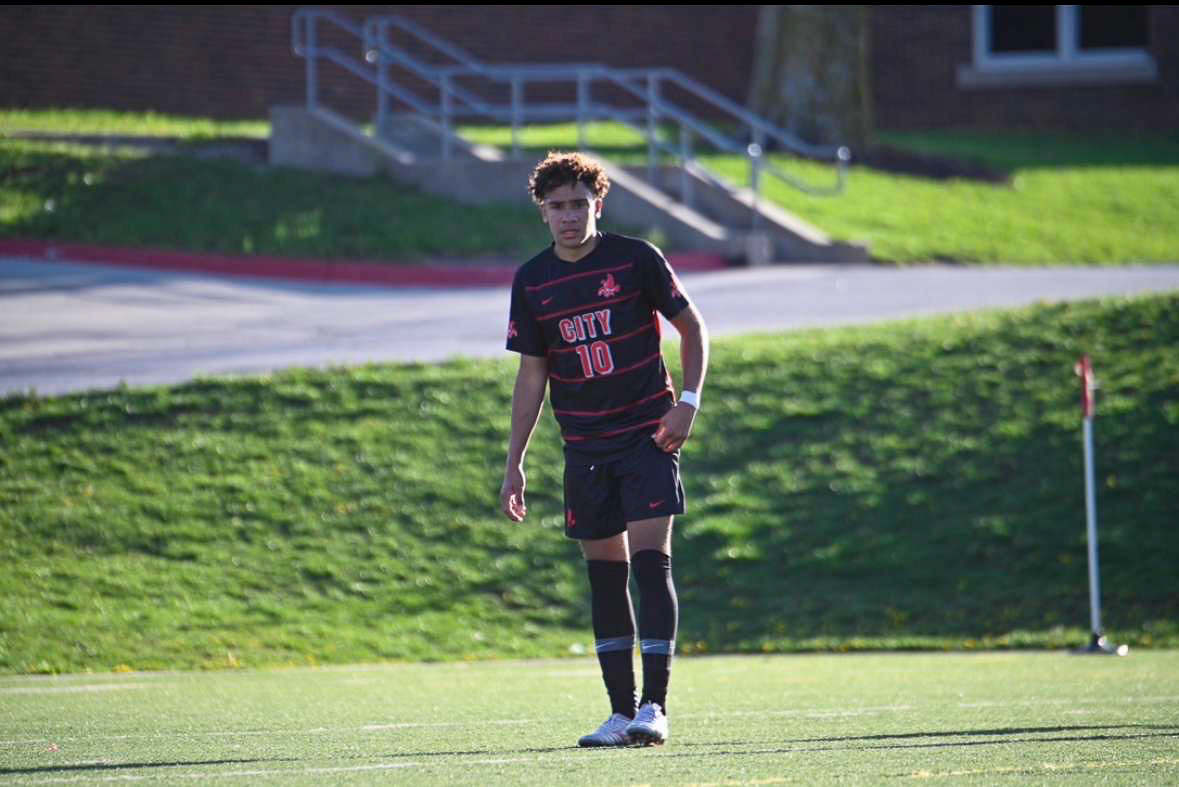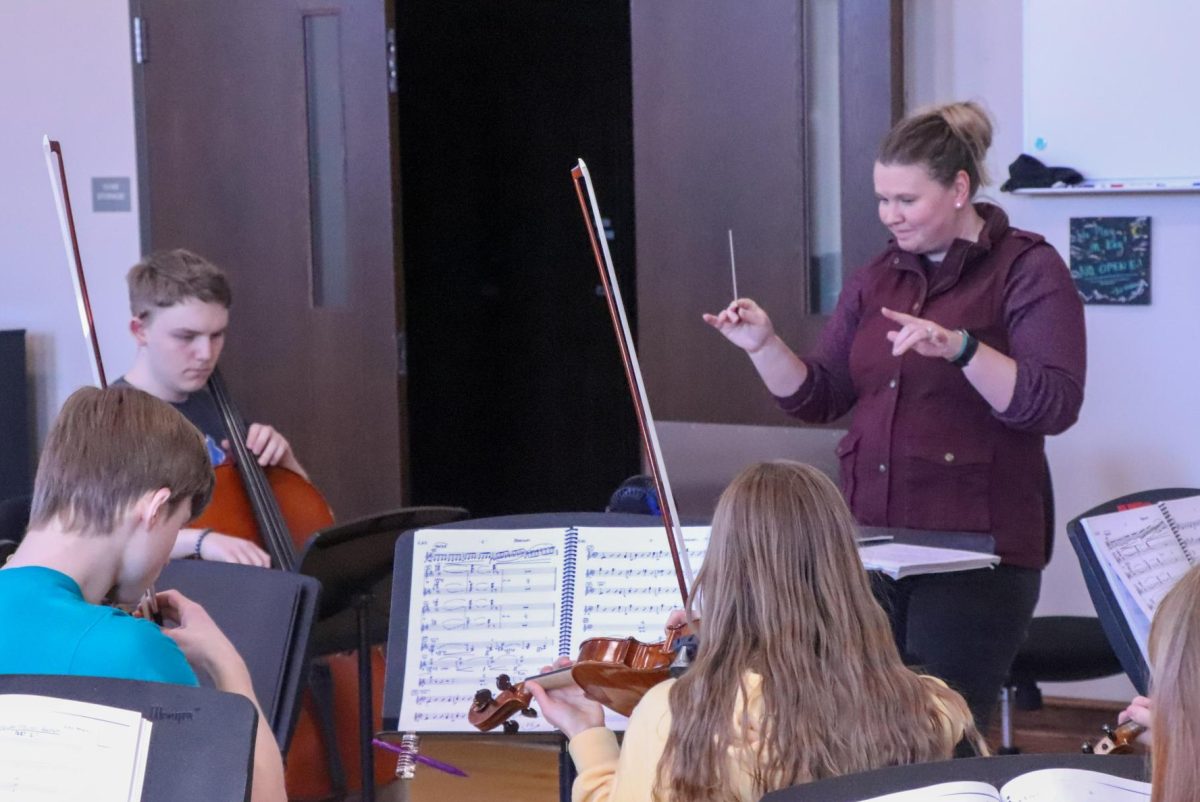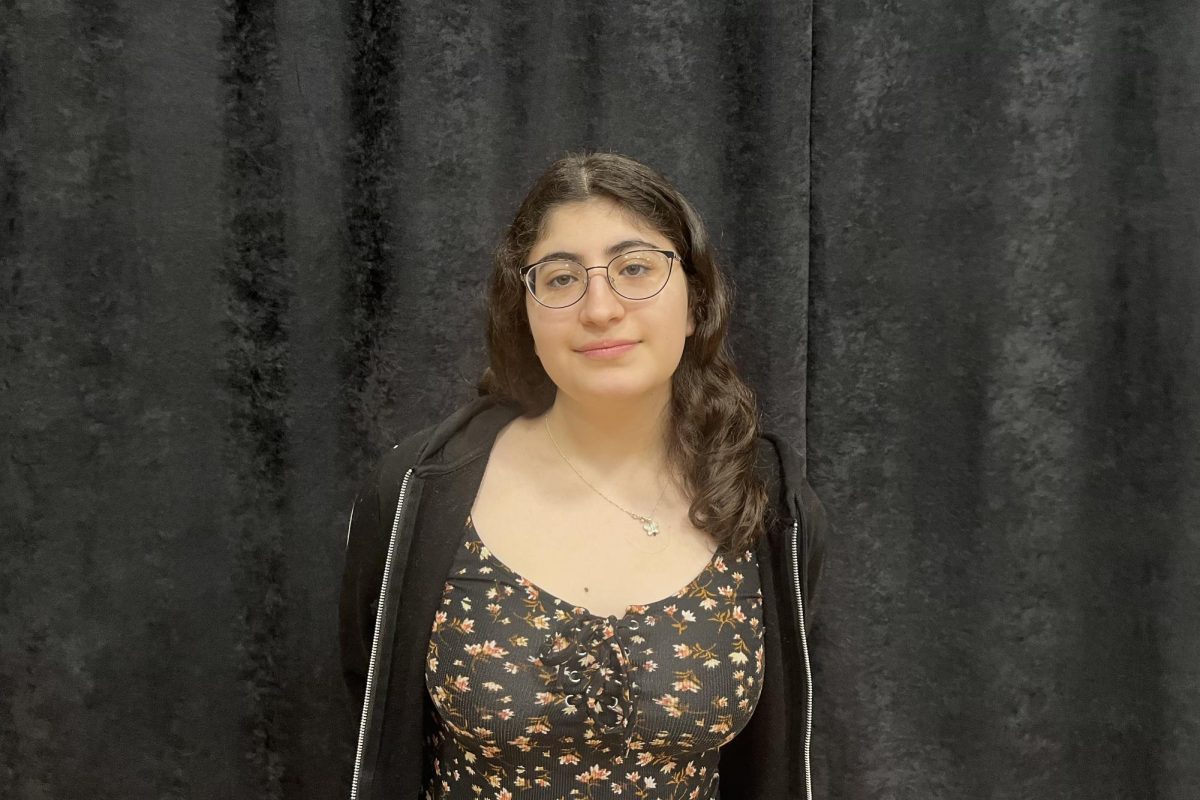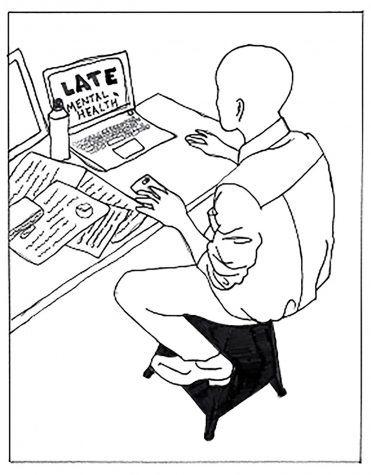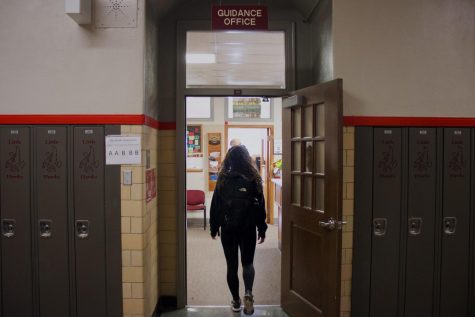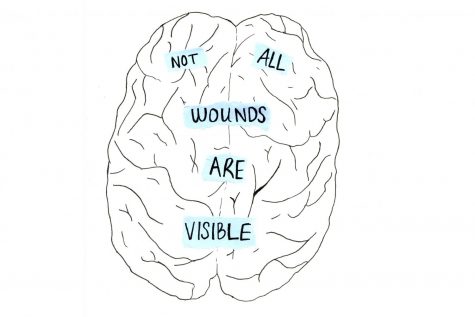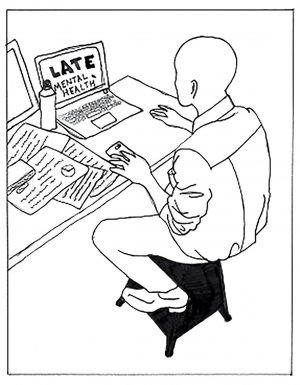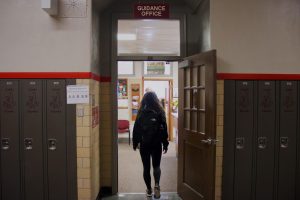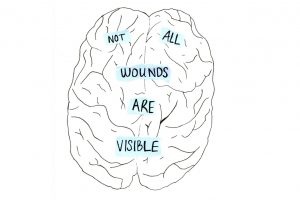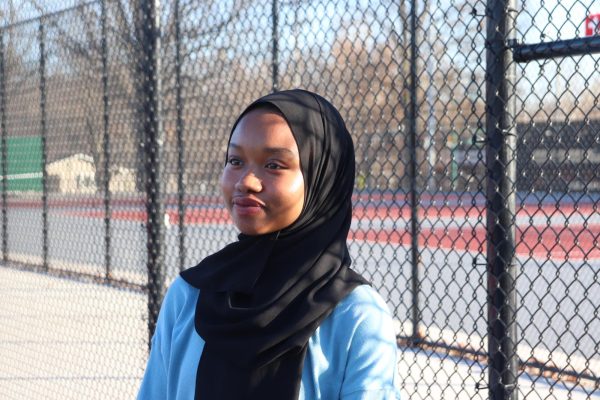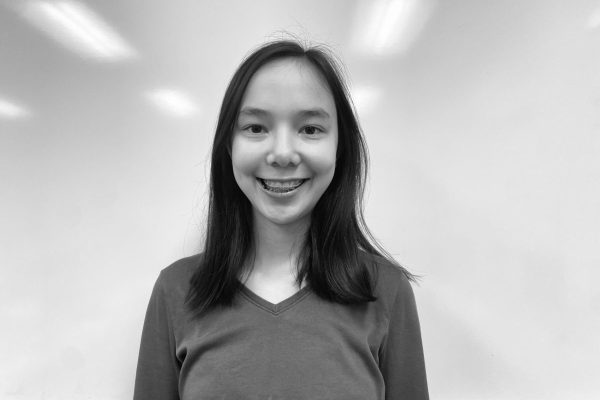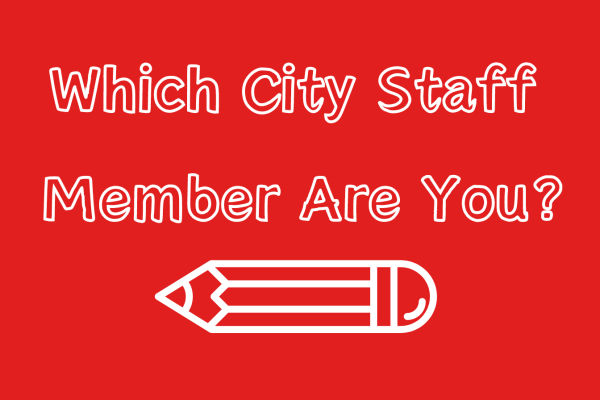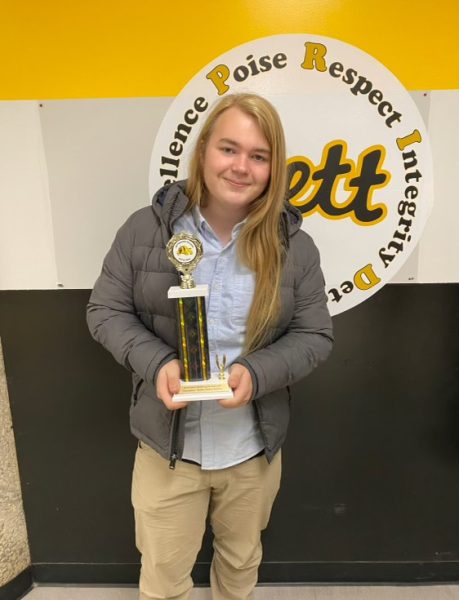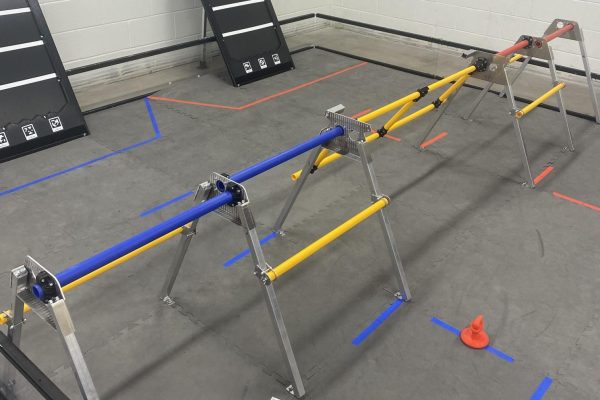NESTT: New Mental Health Resources at City High
To combat the numerous stressors that high school students have faced this past year, City High is opening a mental health room
More from The Little Hawk

More stories from Jesse Hausknecht-Brown
March 25, 2021
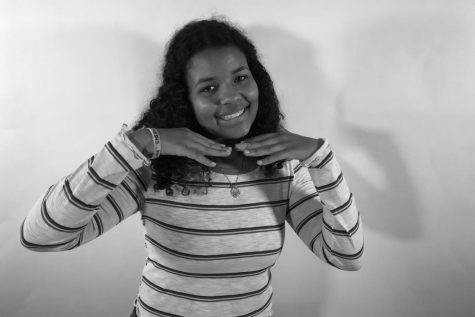
More stories from Aala Basheir
With a pandemic, political turmoil, and a different way of going to school, the topic of mental health has been more relevant than ever in the high school community. From increased surveys about the quality of life to programs designed to keep students and workers engaged — leaders across the board are stepping up to prioritize the physical and mental health of their disciples.
“[With everything going on] there have been a lot of challenges. I am a very extroverted person,” Tatum Frazier 22’ emphasized. “But with the extra time I had, I chose to work on something that would help me.”
While isolation, job loss, and burnout rates among essential workers are increasing. According to a household pulse survey created to track the ways COVID-19 has impacted American lives, the United States Census Bureau found that more than one in three adults have reported feeling anxiety or a depressive episode during the pandemic. Many report that they have increased stress and worry about the pandemic.
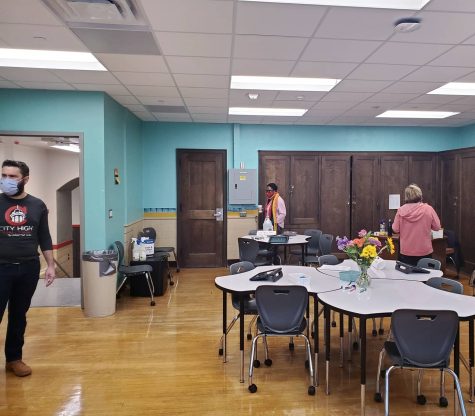
“The district provides employees access to mental health resources/therapy. At City High, Amy Kahle and myself have offered times for staff to get together to talk and connect with one another and to support each other through this year,” Mary Peterson, a guidance counselor at City High, explained.
Due to a new policy implemented by the state legislature, the Iowa City Community School District has offered students the option of working on-site 100% of the time or entering the online school. While this allows for a more consistent schedule, social distancing will require more effort because of the increased number of students.
“I think school contributes a lot to mental health both in good and bad ways. For some kids, it helps them leave their houses, which isn’t always safe. It can also be harmful because a lot of times kids feel misunderstood or overwhelmed,” Amira LaVelle ‘22, who plans to transition to a homeschool method, said.
According to non-profit Kaiser Family Foundation, while increased stress and worrying can be directly linked to the pandemic, the broader issue is the barrier in accessing mental health aid in the community. In the past City High has offered multiple resources available to students within the building such as Student Family Advocates (SFA) and counselors.
“[SFAs and Counselors] can meet with students and help them navigate their mental health and also provide outside resources to families if they are interested,” Peterson said. “We also have a partnership with Four Oaks to have a therapist at City High to meet with students. There is a trimester class that is offered to students called DBT (Dialectical Behavioral Therapy) where they are taught specific techniques throughout the trimester on healthy coping skills to manage stress and regulating emotions.”
In addition to these preexisting services, City High staff members Doug Lestina, Amy Kahle, Thos Trefz, and Mary Peterson proposed a grant to implement a mental health room in the building. With help from the administration and the ICCSD Foundation, they created NESTT: Navigating Emotions and Stress Through Training to promote student mental health.
“We’re a central place for students to come for any mental health needs and support,” Katie Vodraska, a social work master’s student at St. Ambrose, who works in the NESTT center, said. “It could be social-emotional support or if they need to work on coping skills, if they’re having a bad day, if they’re in crisis, stuff like that, our role is to help them and support them.”
The NESTT room, room 3110, is a space for students to go to get mental health help from trained professionals, whether that be immediate help or as a resource in finding adequate long term assistance.
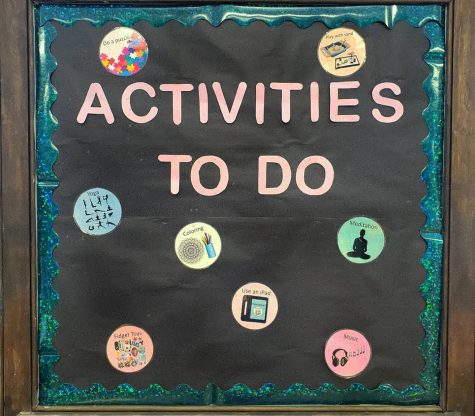
“It’s really rooted in research based on trauma-sensitive schools and trauma-sensitive spaces so meeting kids where they’re at and helping them,” Vodraska said. “Our goal is to help them build skills here, whether it’s a lot of anxiety about being in class or doing class online or having a family emergency at home or needing to work through different thoughts that impact how they navigate school and class so that they can be in class as much as possible.”
The counselors and SFAs have been working to write grants and get the NESTT center up and running for about a year. The room officially opened on January 8, 2021.
“The NESTT is being used as a drop-in place for students to go when they need to,” Peterson said. There is always an adult in the room to help support students and there are a variety of activities students can do to help reduce [the] stress they are experiencing. We have kinetic sand, apps on iPads, coloring pages, talking with an adult, and fidgets to name a few.”
NESTT is also aiming to help teachers and staff in the building. Staff are able to reach out to schedule appointments as well.
“Staff are also able to come to the NESTT if they want to. The NESTT held a 30-day mental health challenge for the staff last month. It included a list of prompts for staff to use to encourage self-care. A student 30-day mental health challenge is taking place this month,” Peterson said.
To accommodate both online and on-site students, in addition to the room, there is a NESTT Instagram account and website that includes a virtual calming room. Students can also schedule an appointment to meet with a professional via Zoom.
“If a student is having an asynchronous or they’re all online, they can still chat with Katie or me virtually,” Krystyna Kaminski, another social work master’s student at the NESTT center, said. “We use a telehealth site called doxie.me. It’s a secure site that’s very easy to access [and] much more user friendly compared to Zoom. If they wanted to meet with us virtually, they would just send us an email to set up an appointment.”
Kaminski explained that both she and Vodraska are trauma-informed and ready to help students who may have experienced any sort of childhood trauma. Those who have experienced Adverse Childhood Experiences (ACEs), are impacted by those experiences for the rest of their lives and can make schoolwork or going to class difficult.
“When you’re under 18 and you experience something traumatic, that changes your brain chemistry and impacts you physically and mentally,” Kaminski said.“I feel like ACEs, that’s a central piece of it when it comes to working with students.
Other physical signs of anxiety or trauma are insomnia, nightmares, difficulty concentrating, restlessness, racing heartbeat, fatigue, and being startled easily.
“We know that for students coming into this space, being trauma-informed or trauma-sensitive really means looking at what’s happened to a student or anyone we’re interfacing with and not seeing them as what’s wrong with them,” Vodraska said.
According to the book Trauma-Informed Care in Behavioral Health Services, trauma-informed care involves a “broad understanding of traumatic stress reactions and common responses to trauma.” Trauma can affect one’s social life, engagement in work or school, and shows up in physical forms as well.
“When you’ve experienced a trauma or you’re having thoughts about something that’s happened, our body’s always giving us a message,” Vodraska said. “We might notice headaches or stomach aches or sweaty palms and things like that and our body telling us we need to take a breath and reconnect to ourselves so that we can be present in the moment. That’s a lot of being trauma-informed.”
The NESTT room at City High is the first space of its kind in the state of Iowa and it’s important to Vodraska and Kaminski that students know that they view this as a positive space.
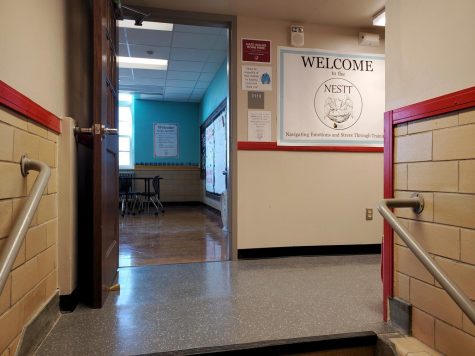
“[The NESTT room] is extremely beneficial to students. I know people who have utilized the space and I hope it becomes more well known — especially this year,” Frazier said.
Vodraska stresses the point that it’s important to support each other because it’s impossible to know what is going on in someone else’s life.
“We’re all human, we’re all going through things, and we don’t know everybody’s story,” Vodraska said. “We all need connection and support and not seeing someone as something bad or wrong, but we’re here to wrap each other in care and support and relationships.”
One problem in the building that led to NESTT being created was that there wasn’t a designated place for students to go if they were having a bad mental health day. Students would get sent to multiple different places that weren’t properly equipped to handle their specific needs.
“Students were being sent to counseling or being sent to the nurse’s office and sent to all these different places to get support,” Vodraska said. “The team found that it would be great to have a central place for students to go if they’re having some mental health challenges.”
The NESTT website can be found at here and the NESTT Instagram handle is @nesttcityhigh.
“Our goal is ultimately to get them back to class and engage in school in a way that feels safe and comfortable,” Vodraska said.
Your donation will support the student journalists of Iowa City High School. For 2023, we are trying to update our video and photo studio, purchase new cameras and attend journalism conferences.





